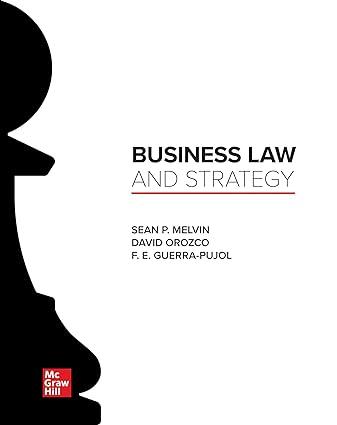Although Barry Switzer is best known for his success as a professional and college football coach, he
Question:
Although Barry Switzer is best known for his success as a professional and college football coach, he also had significant involvement in various business ventures in Oklahoma and Texas. While attending his son’s track meet in 1982, Switzer was filling time between events and lay down in the bleachers to sunbathe. Sitting in the bleachers in front of Switzer was Platt, an executive at Texas International Corporation (TIC). Switzer and Platt knew each other and had greeted one another earlier in the track meet, but Platt was unaware of Switzer’s presence in the bleachers at that time. Within earshot of Switzer, Platt discussed some of the challenges and troubles of TIC with his wife who was sitting next to him in the bleachers. The 20-minute conversation included highly confidential information about Phoenix, one of TIC’s subsidiary companies.
The next day, Switzer, without expressly mentioning what he had overheard, convinced several investors to form a partnership for purposes of buying Phoenix stock. Switzer, both as an individual and as a partner with other investors, purchased large amounts of Phoenix stock. Before overhearing Platt’s conversation, neither Switzer nor his partners had ever heard of Phoenix.
Ultimately, Switzer and his partners earned a substantial profit from the purchase and sale of the Phoenix stock. After an investigation of Phoenix, the SEC filed a complaint alleging that Switzer was a tippee and tipped others on insider information. They charged that Switzer and his partners violated Rule 10b-5 of the Exchange Act by engaging in insider trading because Switzer had used the information that he overheard from Platt while lying in the bleachers.
CASE QUESTIONS
1. Who prevails and why? Do you believe that the SEC prosecuted Switzer because of his high profile?
2. Although Platt did not intend to disclose the information to Switzer, could Platt’s choice to discuss confidential corporate matters with his spouse in a public place where one could easily overhear him constitute the requisite breach of duty required for a tipper-tippee case?
3. Did Switzer’s partners have a legal and/or ethical duty to inquire about the source of Switzer’s information? Why or why not? Did their actions affect the overall market? Other investors?
Step by Step Answer:

Business Law And Strategy
ISBN: 9780077614683
1st Edition
Authors: Sean Melvin, David Orozco, F E Guerra Pujol





